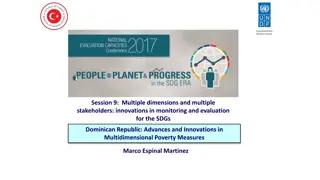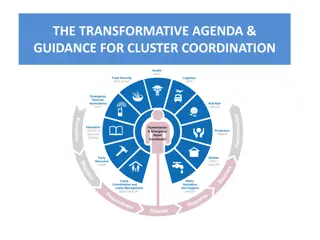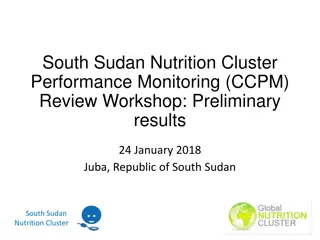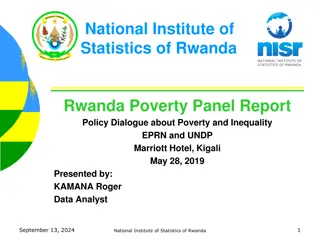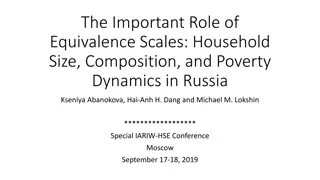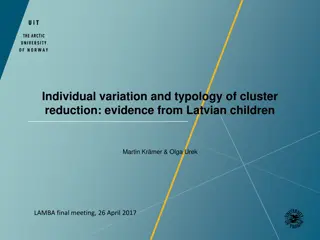Leveraging Cluster Development for Industrial Growth and Poverty Reduction
Cluster development is a successful approach in countries like China, India, and South Korea, as highlighted in the Industrial Development Policy 2012-2016. The strategy fosters proximity, specialization, collaboration, and collective efficiency among businesses, leading to increased productivity, competitiveness, and job creation. However, challenges like lack of financial support and knowledge hinder SME participation in clusters.
Download Presentation

Please find below an Image/Link to download the presentation.
The content on the website is provided AS IS for your information and personal use only. It may not be sold, licensed, or shared on other websites without obtaining consent from the author. Download presentation by click this link. If you encounter any issues during the download, it is possible that the publisher has removed the file from their server.
E N D
Presentation Transcript
Cluster development as an approach to industrial development has been successful in countries like China, India, South Korea, Malaysia In at least 50 developed and developing economies clustering phenomenon is visible It is acknowledged in our Industrial Development Policy 2012-2016 Can have direct impact on poverty reduction, generating employment Can increase productivity and competitiveness of SMEs
Geographical proximity Same line of business or complementary business active channels of business transactions, communications and dialogue share specialized infrastructure, labour market and services and they are faced with common opportunities and threats.
Geographical proximity Sectoral specialization Close inter-firm collaboration Common infrastructure Common opportunities Common threats
Common procurement of inputs Greater bargaining power with customers Greater presence in the market place- critical mass to achieve economies of scale Enhanced possibility of securing or sharing big contracts Easy provision of business development support services therefore enhanced effectiveness and collective efficiency Sharing of risks, and other critical resources e.g manpower, equipment, technology, training facilities
Leather work Furniture making Dairy farming Metal fabrication Clothing and textiles Agro-processing Retail- flea markets
Methodology Selection of a cluster based on importance, viability and sustainability Diagnostic study Trust building Action plan Implementation Monitoring and Evaluation
Lack of dedicated financial support Limited appropriate infrastructure and work space Lack of knowledge of cluster concept and benefits by SMEs- unwillingness to collaborate Lack of technical support(technology, expertise)
Formulating and implementing MSME development policies. Developing legal and regulatory framework for SMEs development Promoting, coordinating and monitoring innovative financing schemes for SMEs.
Providing technical skills and management training that support entrepreneurship and small business growth Facilitating linkages enterprises and SMEs Business consultancy services to SMEs Research into investment opportunities for SMEs Facilitating provision infrastructure to SMEs between large scale and marketing of appropriate








